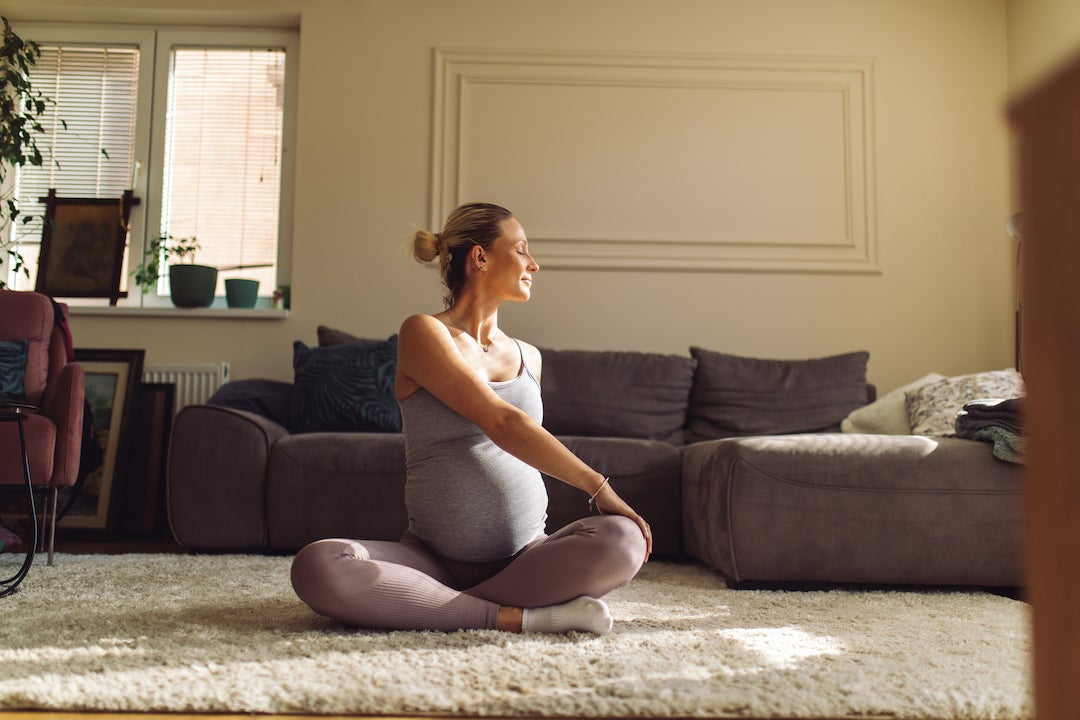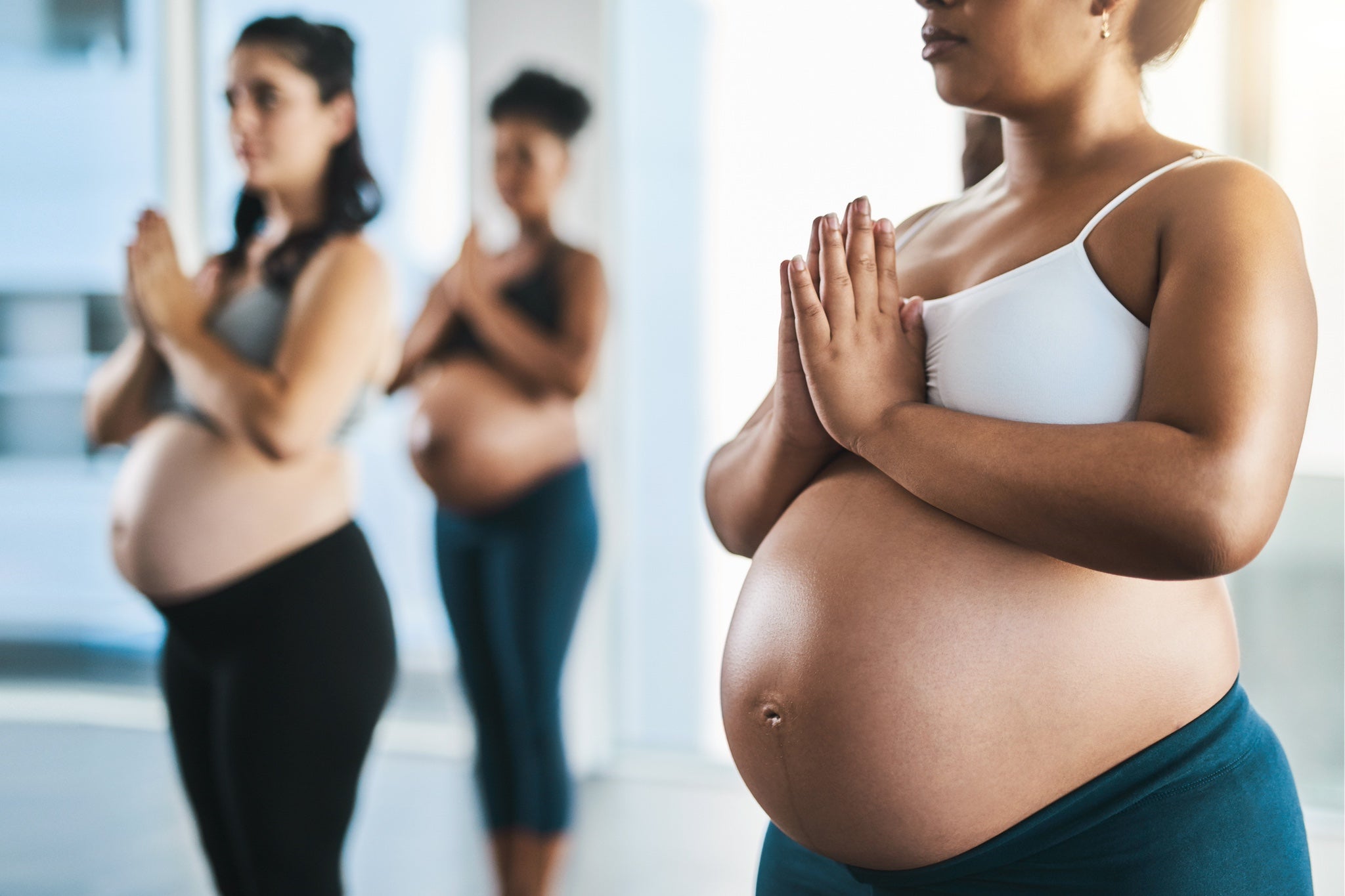How to stay fit during pregnancy – the health benefits and best exercises to do
Keeping fit during pregnancy has many benefits. Experts tell Fitness editor Emilie Lavinia the best exercises to do at each stage


Adapting to pregnancy can be difficult, no matter your body type or how resilient you might be. During every stage of pregnancy, the body goes through changes and whether it’s your first time or you’ve experienced being pregnant several times, there can be changes that will be difficult to navigate.
One of the biggest challenges as your body changes is staying active and maintaining your fitness levels. Many people experience anxiety around working out during pregnancy and tend to put their workout routine on hold to avoid complications. However, studies show that being active during this time has plenty of benefits.
One study found that women who exercised regularly in water during their pregnancies experienced a shorter labour, and another showed that maintaining a level of physical activity helped with adapting to weight gain and lessening pain and tension in muscles. This tracks when you consider the impact of training on maintaining healthy muscle and improving circulation.
Of course, there are things to consider while pregnant and if you usually train intensely and lift heavy, you’ll have to make some adjustments and modifications to your routine. Luckily, this is very easy to do. And if you’ve never exercised before but want to stay fit during pregnancy, there are plenty of simple and effective routines to follow that will benefit your health throughout every term and beyond.
I spoke with a pregnancy and fitness expert to discover the best exercises for pregnancy, how to make the right adjustments and how to look after your health and fitness in the best way during this transformative time.
How to stay fit during pregnancy
Experts advise that moderate exercise is not dangerous for you or your baby, in fact, it can improve your pelvic muscle health, cardiovascular health and help you to feel more energised, which can all help with supporting a healthy pregnancy, labour and postpartum period. If you’re an avid crossfitter, you may have to make some adjustments to the way you usually work out, however, certain types of exercise, like pilates and yoga, come highly recommended.
“A lot of hormonal and physical changes happen during pregnancy so you want to find movement that’s working with you, assisting you with feeling strong, energised and grounded.” advises Jacqui Kingswell, co-founder of The Birthing Class and The Pilates Class. “Pilates focuses on working with resistance and with control whilst targeting the deeper and smaller muscle groups. And importantly for pregnancy and beyond, it teaches you to connect to your breath with each movement and repetition.”
Pilates and yoga are what’s known as low-intensity styles of training because they encourage slower, more considered movements and isolated poses to stretch and tone muscles. For this reason, they’re great options for those who might not have worked out before but who are interested in staying fit during pregnancy. When it comes to other styles of exercise, particularly high-intensity styles, you’ll have to make some modifications.
Read more: Real self care starts with four basic rules says Neom founder, Nicola Elliott
If you favour something like interval training, it’s easy to make adjustments to your routine by lessening the intensity of each interval. For example, if you usually lift heavy weights that place a lot of impact on your core muscles, you might consider lowering the weight you usually lift so that you can still train but do so safely. If you like to run, you might consider going a little slower, rather than pushing your body to its limit.
The NHS recommends that as a general rule, you should be able to hold a conversation as you exercise when pregnant. So if you become breathless as you talk, you’re probably exercising too strenuously. This is a good way to keep track of how hard you’re working and whether you’re doing too much.
“There are different things to consider during each trimester.” says Kingswell. “You can absolutely continue to do things like weight training during pregnancy, if you’re taking the correct modifications when needed. But there are a range of moves you need to start modifying when entering the second trimester.”

What are the benefits of exercise while pregnant?
One of the most important things to consider when pregnant and trying to stay fit is prioritising the muscle groups that will support a healthy pregnancy, and resting the muscles that could cause strain, particularly as you move into the later stages. Studies have shown that regular gentle exercise helps with posture, strength, muscle tone and sleep and in pregnant people, it can help with symptoms like bloating, swelling and back ache.
Working certain muscle groups, particularly the pelvic muscles can help with labour and with recovery after birth so it’s important to pick a style of exercise that not only suits you, but that hones in on the pelvic muscles and supports body conditioning and function, rather than aesthetics.
“You want to avoid doing any abdominal work using your rectus abdominis, also known as your six pack, so removing any exercises that use abdominal curling or contracting of the spine,” says Kingswell. “The rectus abdominis looks great to some, but really it doesn’t serve much purpose during pregnancy and postpartum. It’s the deeper abdominal muscles we want to work.”
“As your baby grows so does your belly and your abdominal muscles start expanding and separating. When this separation doesn’t close back together post birth, this is called Diastasis Recti, which is super common. But there are ways to help avoid that or to assist with bringing abdominal muscles back together. You can do this by working the pelvic floor and deeper transverse abdominal muscles which sit behind your six pack.”
Read more: 17 best pregnancy skincare buys
The NHS advice is to exercise as long as you feel comfortable. If anything begins to feel uncomfortable, slow right down or stop altogether and consult your doctor. It’s also a good idea to work with a professional, like a PT or instructor who can advise you on how to modify your movements as you move through the later stages of pregnancy. If you’re going to your usual classes, tell your instructor you’re pregnant and they will offer advice on what kind of adjustments you can make during each class.
“I encourage women to get strong during pregnancy so they feel confident and prepared during labour, birth and beyond but women should learn the correct techniques to prevent injury, understand the functionality of their bodies, the importance of breathwork, movement and why they’re working that particular muscle group. Above all, tune into their bodies on each particular day, because everyday is different, especially during pregnancy.” says Kingswell.
If pilates, interval training or running aren’t comfortable for you, there are plenty of other options. Swimming can be incredibly beneficial during pregnancy because of the buoyancy that water provides, especially during the third trimester when carrying extra weight can put strain on your joints. If you’re working out at home, yoga on a mat using blocks for support, resistance bands, exercise balls and ankle weights can all be great tools for gentle training and you can opt for 10 minutes to 45 minutes, depending on how able you feel from day to day. Exercise doesn’t have to be strenuous to benefit you.
Kingswell also recommends joining a community to help with fitness during pregnancy. Online classes, apps and group chats can help with seeking out advice and support from experts and peers throughout every trimester. Above all, the advice from pregnancy experts is to listen to your body and go at a pace that suits you – this might not mean exercising every single day. Every person is unique and one health journey can look very different from another.
Fitness is also not an isolated endeavour so your sleep, your diet, supplementation and your comfort levels can all influence how effective your workouts are and how able you feel from day to day. A balanced diet, proper hydration, mood regulation and quality sleep will support your wellbeing and your energy levels throughout your pregnancy.
Enjoying this? Sign up for Emilie Lavinia’s weekly wellness newsletter Well Enough
Join our commenting forum
Join thought-provoking conversations, follow other Independent readers and see their replies
Comments



Bookmark popover
Removed from bookmarks